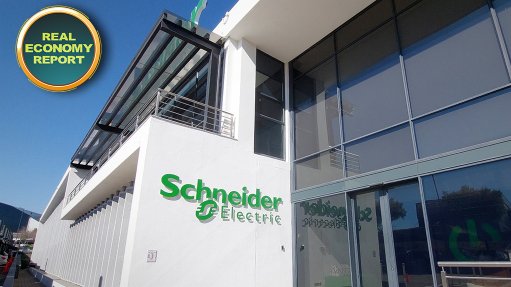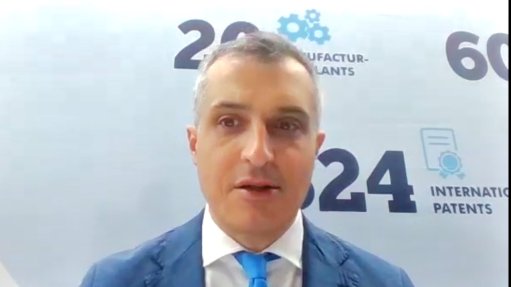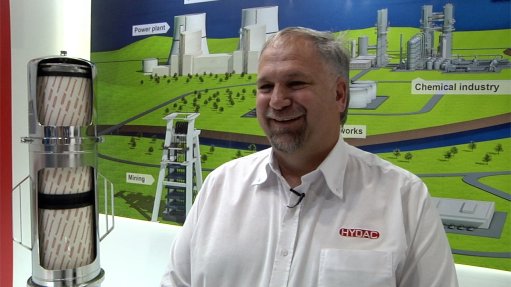SA agriculture needs the right decisions, actions and plans to grow
The future of the South African agriculture sector is dependent on the country and industry making the right policy and investment choices, cautioned Bureau for Food and Agricultural Policy (BFAP) board of directors member Professor Ferdi Meyer, speaking recently at the launch of the ‘BFAP Baseline Agricultural Outlook 2019–2028’ report. “Growth in the future is not that strong,” he pointed out. “[South Africa] alone [accounts for] a small share of the total [global agricultural] economy . . . Growth is not handed to us.”
The BFAP has identified four big issues with regard to policy. The first of these is land reform and farmer support. This issue includes policy certainty and property rights. “Policy certainly and property rights are critical to drive investments, incentives and innovation,” he observed. Further, although it might seem surprising, South Africa still had unused land and unused water resources.
The second issue is infrastructure and technology. A very important part of this is water infrastructure. He quoted water experts as saying that it was “do or die for water infrastructure over the next five years”. Water was not just government’s responsibility. “[I]t is also the farming community’s responsibility,” he affirmed. Farmers had to be more responsible in their water use. This was now happening – an example being the much-increased use of shade netting to reduce evaporation of water being used for irrigation. There was also a need to prioritise infrastructure development in the former homeland areas.
Third was statistical baseline information. There was a lot going on in South African agriculture about which little was known. “In the informal [agriculture] sector, there is something happening and we’re not capturing it,” he cited. The country had many very small farms (about one hectare each), which formed the basis of an informal agricultural economy, running within, and important to, local communities. Yet little was known about this sector.
Fourth was a focused drive on increasing South African access to the major international agricultural markets.
In its baseline report, the BFAP warned that it expected the gross value of South Africa’s agricultural production this year to be similar, in real terms, to that of 2015. “Apart from low commodity prices and pressure on the disposable income of consumers, sectoral performance was riddled with exogenous shocks, such as Avian influenza, Listeria and severe drought conditions in many parts of the country,” stated the report. “Under the 2019 baseline projections, the short-term recovery in agricultural gross domestic product is supported by higher international prices, following excessively wet conditions in the US. “ After that, sustained improvements only occur from 2023 onwards, when economic growth rates pick up and production levels in the livestock industry recover from the drought and disease outbreaks.”
Moreover, the global agricultural trade environment is now more hostile than it was a decade ago. Currently, there is the China-US trade war, which is affecting global trade flows; Europe is tightening up its environmental and sanitary and phyto-sanitary regulations; the African Swine Flu outbreak in China could result in a global livestock market shock; while intra- African trade remains hobbled by protectionism, bureaucracy, high costs and ad hoc policies. This situation requires nimble government responses, working closely with the private sector, to achieve success in the global markets.
“Despite the difficult conditions in South African agriculture in recent years, some sectors performed exceptionally well, with both reinvestment and greenfield investment maintaining and growing output and employment,” pointed out the report. “As a share of global trade, South African exports of citrus, grapes and pome fruit [for example] have been increasing over the past decade, with citrus leading the way, growing its [global market] share from around 4% in 2001 to more than 10% in 2018, followed by table grapes (5% to 7%) and pome fruits (3% to 6%).”
At home, the cost of a basket of staple foods for a family of four has decreased, from R479 a month in 2016 to R425 a month in 2018. But the BFAP expects this trajectory to reverse and for the cost of the staple basket to increase by 6% between this year and 2028. The main driver of this rise will be the price of maize meal, which is forecast to rise by 11%.
“While baseline [report] projections are generally positive in the sense that a recovery is projected under the current set of assumptions, South Africa needs more to achieve the targets of transformation, jobs, growth and land reform that have been set by the National Development Plan,” warns the BFAP. “The sector will only grow above baseline expectations through the implementation of very specific and well-coordinated actions and plans, of the public and private sectors with real capital and people to drive inclusive agricultural transformation and transfer of land in a just and sustainable way. “There is no lack of plans and we have the benefit of learning from our mistakes – what is needed now is a greater emphasis on implementation.”
The BFAP is a nonprofit organisation. Founded in 2004, it exists to carry out unbiased, scientifically rigorous research relevant to the agriculture sector.
Comments
Press Office
Announcements
What's On
Subscribe to improve your user experience...
Option 1 (equivalent of R125 a month):
Receive a weekly copy of Creamer Media's Engineering News & Mining Weekly magazine
(print copy for those in South Africa and e-magazine for those outside of South Africa)
Receive daily email newsletters
Access to full search results
Access archive of magazine back copies
Access to Projects in Progress
Access to ONE Research Report of your choice in PDF format
Option 2 (equivalent of R375 a month):
All benefits from Option 1
PLUS
Access to Creamer Media's Research Channel Africa for ALL Research Reports, in PDF format, on various industrial and mining sectors
including Electricity; Water; Energy Transition; Hydrogen; Roads, Rail and Ports; Coal; Gold; Platinum; Battery Metals; etc.
Already a subscriber?
Forgotten your password?
Receive weekly copy of Creamer Media's Engineering News & Mining Weekly magazine (print copy for those in South Africa and e-magazine for those outside of South Africa)
➕
Recieve daily email newsletters
➕
Access to full search results
➕
Access archive of magazine back copies
➕
Access to Projects in Progress
➕
Access to ONE Research Report of your choice in PDF format
RESEARCH CHANNEL AFRICA
R4500 (equivalent of R375 a month)
SUBSCRIBEAll benefits from Option 1
➕
Access to Creamer Media's Research Channel Africa for ALL Research Reports on various industrial and mining sectors, in PDF format, including on:
Electricity
➕
Water
➕
Energy Transition
➕
Hydrogen
➕
Roads, Rail and Ports
➕
Coal
➕
Gold
➕
Platinum
➕
Battery Metals
➕
etc.
Receive all benefits from Option 1 or Option 2 delivered to numerous people at your company
➕
Multiple User names and Passwords for simultaneous log-ins
➕
Intranet integration access to all in your organisation

















